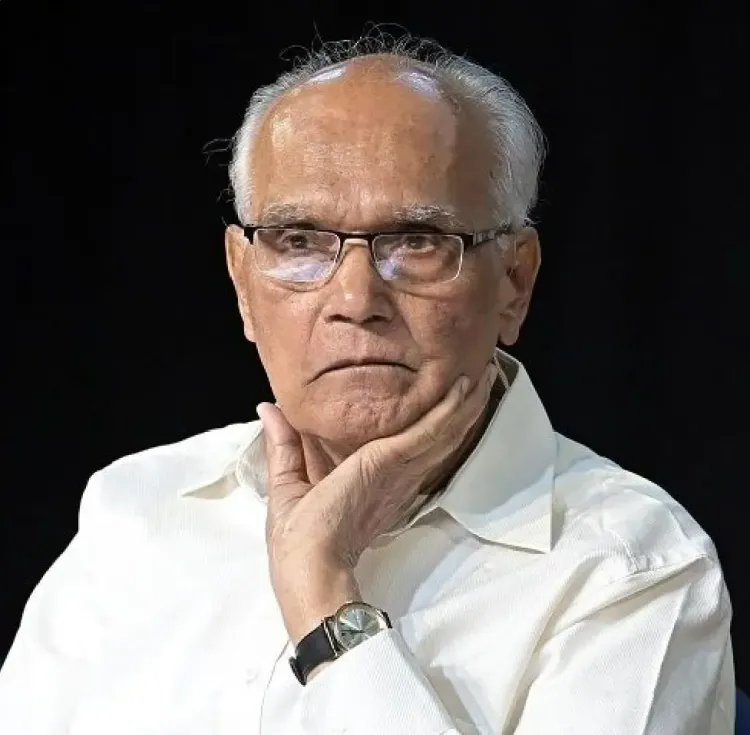What Did Banu Mushtaq Remember About Bhyrappa's Visit?

Synopsis
Key Takeaways
- Banu Mushtaq reflects on her memories with S.L. Bhyrappa.
- Bhyrappa aimed to explore Muslim culture for his novel.
- Conversations revealed ideological differences.
- The impact of 'Aavarana' on cultural discourse is profound.
- Understanding complex communities requires deep engagement.
Bengaluru, Sep 25 (NationPress) Booker Prize winner Banu Mushtaq, while expressing her condolences over the passing of legendary Kannada author S.L. Bhyrappa, reminisced about his decision to reside at her home for a week. This was to gain insight into Muslim life before he wrote his acclaimed novel 'Aavarana'.
Bhyrappa passed away on Wednesday due to a cardiac arrest in Bengaluru. His last rites are to be conducted in Mysuru with state honors.
Banu Mushtaq remarked, "I observed that Padma Bhushan awardee Bhyrappa had no strict food habits. Since childhood, I enjoyed reading his works and considered myself one of his most devoted fans. However, after witnessing his rigid ideologies and prejudiced views, I found myself drifting away as a reader. He seemed to construct arguments like a proficient lawyer, meticulously gathering facts through research, and then presenting them persuasively."
"I often questioned: who had diminished his creativity?" Banu Mushtaq pondered.
"Despite our ideological differences, the memories of our conversations will always remain vivid. With the news of his passing, I feel a deep personal loss. I pay my heartfelt respects to Bhyrappa," she added.
"Bhyrappa visited Hassan for a literary event. I arrived late and was informed that he had inquired about me. After the event, he expressed a desire to visit my home and stay for a week. I invited him immediately, but he opted to come later," Banu Mushtaq recalled.
"I panicked and soon forgot about it," she said.
She revealed that a month later, Bhyrappa called to inform her he would prefer vegetarian meals, and arrangements were made accordingly.
Her family was thrilled to host Bhyrappa, though her son was initially reluctant but later consented.
Bhyrappa explained that he chose to stay with them to gather insights for his novel, specifically to observe Muslim family dynamics and culture.
"My husband, Mushtaq Mohiyuddin, and Bhyrappa visited a mosque during prayer time. Women had a designated area for prayers, and I usually attended only on Fridays. Mushtaq brought him there, and Bhyrappa took notes after washing his hands and feet," she shared.
Later, Bhyrappa expressed interest in visiting a Muslim educational institution, so Mushtaq took him to Alur. He toured the campus, checked the student facilities, and documented everything meticulously.
"However, to Bhyrappa's inquisitive nature, the essence of Muslim life remained largely unexplored. Understanding the complexities of the Muslim community in just a week was an unrealistic expectation. Still, his drive for knowledge and eagerness to explore unfamiliar realms was commendable. Yet, I felt that he was only scratching the surface of understanding."
Eventually, the novel 'Aavarana' was released. In it, Bhyrappa provided examples that aligned with his preconceived notions, contributing to the "demonization" of the Muslim community, just as he had researched. However, in the novel's preface, he mentioned staying at a sister's house without revealing the name.
Gradually, it became known that before writing 'Aavarana', he had stayed at my residence, Banu Mushtaq recounted.









